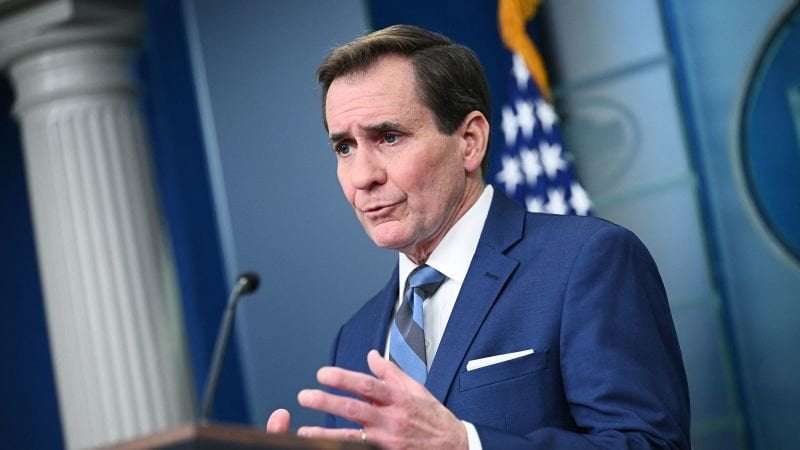The White House on Thursday confirmed that the national security threat flagged by the chairman of the House Intelligence Committee the previous day is related to “an anti-satellite capability that Russia is developing,” but sought to soothe concerns about the danger it presents to the United States.
“This is not an active capability that’s been deployed,” National Security Council spokesman John Kirby said Thursday. “And though Russia’s pursuit of this particular capability is troubling there was no immediate threat to anyone’s safety.”
“We are not talking about a weapon that can be used to attack human beings or cause physical destruction here on Earth,” Kirby added.
Kirby’s comments came a day after the chairman of the House Intelligence Committee, Republican Rep. Mike Turner of Ohio, ignited a firestorm on Capitol Hill when he issued a cryptic statement announcing that the panel had “information concerning a serious national security threat.”
The lack of immediate details about the nature of the threat left many filling in their own blanks about its severity and imminence. Turner has faced withering criticism, even from members of his own party, for publicizing the committee’s knowledge in a vague post to social media, with Rep. Matt Gaetz of Florida accusing him of “gaslighting the country,” and Rep. Andy Ogles of Tennessee demanding an investigation into Turner.
Both Gaetz and Ogles said they believe Turner was motivated to make the information public to rouse support for additional funding for Ukraine in its war against Russia. The Kremlin repeated that talking point on Thursday, Reuters reported.
Kirby responded to the Kremlin’s claim with one word: “Bollocks.” He later added that the US is still in the process of reaching out to Russia for conversations on Moscow’s anti-satellite capabilities. “We’ll have to see” whether public disclosure of the threat might make those conversations more difficult, he said.
Turner has publicly supported continuing to fund the Ukraine war effort, even as former President Donald Trump has supported the GOP push to oppose a $60 billion aid package to support Ukraine.
Other members of the Intelligence Committee came to Turner’s defense. Texas Rep. Dan Crenshaw defended Turner’s decision to publicize the information.
Referencing the allegations that Turner planned the release to coincide with efforts to provide additional funding, Crenshaw said the timing was a coincidence.
“There was notifications from the intelligence community that made it just clearer now than before,” Crenshaw said. “This was just the time.”
The post from Turner called on President Joe Biden to declassify “all information” related to the threat. Kirby said the US intelligence community had “serious concerns” about a broad declassification of intelligence related to the threat.
He added that private engagement, “rather than immediately publicizing the intelligence, could be a much more effective approach.”
The United States has been aware of Russia’s pursuit of anti-satellite capability going back “many, many months, if not a few years,” Kirby said, and Biden has been briefed on it since the outset of his term.
He said it was only in recent weeks that the intelligence community has been “able to assess with a higher sense of confidence exactly how Russia continues to pursue it.”
As to whether the intelligence should be downgraded, Kirby said the administration has been following a rigorous process, and wouldn’t be “knocked off” that by Turner’s decision to publicize the threat on Wednesday.
He denied the administration provided a green light to Turner to make the information public.
While Kirby said the Russian capabilities do not pose a threat to human life, an anti-satellite weapon placed in orbit around Earth would pose a significant danger to US nuclear command and control satellites, Hans Kristensen, director of the Nuclear Information Project at the Federation of American Scientists, told CNN on Wednesday.
The US relies on such satellites – which he called “essential” – to ensure constant, seamless control over its nuclear arsenal.
Russia has pursued counterspace systems designed to neutralize US military and commercial space systems for years, according to a 2022 Defense Intelligence Agency (DIA) report on space security. Russian doctrine called for being able to target an enemy’s satellites from the ground, air, cyber and space, using attacks that range from temporary jamming to outright destruction.
This story has been updated with additional information.
CNN’s Morgan Rimmer, Oren Liebermann and Katie Bo Lillis contributed to this report.
